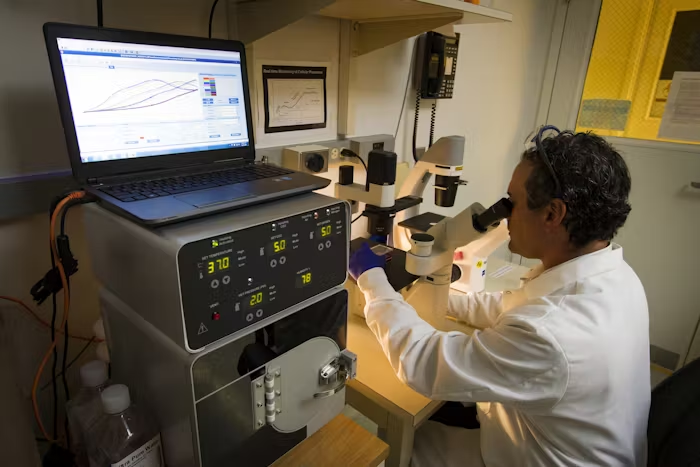Artificial Intelligence (AI) is rapidly transforming industries, and healthcare is no exception. By enhancing diagnostics, optimizing treatments, and personalizing patient care, AI is paving the way for unprecedented healthcare improvements. In this article, we’ll explore How Artificial Intelligence is Revolutionizing Healthcare, its current applications, and its potential to reshape the future of medicine.
The Evolution of Artificial Intelligence in Healthcare
The integration of AI improving healthcare began with the advent of machine learning and data-driven insights. As healthcare systems grappled with rising costs, complex diseases, and the demand for personalized medicine, AI emerged as a solution capable of addressing these challenges effectively.
Today, AI spans a wide range of applications, from disease prediction and robotic surgeries to drug discovery and patient engagement.

Key Areas Where Artificial Intelligence is Revolutionizing Healthcare
1. Enhanced Diagnostics
Accurate and timely diagnosis is crucial for effective treatment. AI-powered diagnostic tools are improving the detection of diseases such as cancer, heart conditions, and neurological disorders.
Examples:
- Radiology: AI algorithms analyze medical imaging like X-rays, MRIs, and CT scans with precision, identifying anomalies that human eyes might miss.
- Pathology: AI systems assess tissue samples to diagnose diseases at an earlier stage, significantly improving outcomes.
Benefits:
- Reduced diagnostic errors.
- Faster results for critical conditions.
2. Personalized Medicine
One of the most impactful ways AI is improving healthcare is by tailoring treatments to individual patients. AI analyzes genetic, environmental, and lifestyle factors to recommend customized therapies.
Examples:
- Predictive analytics for identifying patients at high risk of developing chronic diseases.
- AI-driven pharmacogenomics to determine the best drug and dosage for a specific patient.
Benefits:
- Improved treatment efficacy.
- Minimization of adverse drug reactions.
3. Streamlined Administrative Tasks
Administrative inefficiencies have long burdened healthcare providers. AI streamlines operations by automating repetitive tasks, allowing professionals to focus on patient care.
Examples:
- Automating appointment scheduling and billing processes.
- AI-powered voice recognition for transcribing medical notes.
Benefits:
- Enhanced efficiency in hospital workflows.
- Reduced burnout among healthcare staff.
4. Revolutionizing Drug Discovery
Traditional drug development is time-consuming and costly. AI accelerates this process by analyzing vast datasets to identify potential drug candidates, predict outcomes, and optimize trials.
Examples:
- AI algorithms identifying new uses for existing drugs.
- Simulating drug interactions in silico before clinical trials.
Benefits:
- Reduced research and development costs.
- Faster availability of life-saving medications.
5. Improved Patient Monitoring and Care
Wearable devices and remote monitoring tools powered by AI allow continuous tracking of patients’ health, providing real-time insights.
Examples:
- Smartwatches detecting irregular heart rhythms and alerting users to seek medical attention.
- AI-based platforms managing chronic diseases like diabetes by providing personalized recommendations.
Benefits:
- Early detection of potential complications.
- Enhanced patient engagement in their health management.
6. Robotic-Assisted Surgeries
AI-powered robots are transforming surgical procedures, enabling precision, consistency, and minimally invasive techniques.
Examples:
- The Da Vinci Surgical System uses AI to enhance a surgeon’s capabilities.
- AI-guided robotic arms assisting in complex orthopedic surgeries.
Benefits:
- Reduced recovery time for patients.
- Improved surgical outcomes with fewer complications.
How AI is Addressing Global Healthcare Challenges
1. Bridging the Gap in Access to Care
AI-driven telemedicine platforms enable remote consultations, bringing quality healthcare to underserved and rural areas.
2. Managing Epidemics and Pandemics
AI analyzes global health data to predict disease outbreaks and model the spread of infectious diseases, aiding in swift containment efforts.
3. Reducing Healthcare Costs
By improving operational efficiency, minimizing errors, and enabling preventive care, AI helps reduce the overall cost burden on healthcare systems.
Challenges in Adopting AI in Healthcare
While AI improving healthcare is undeniable, its integration faces several hurdles:
1. Data Privacy and Security
Healthcare data is sensitive, and AI systems require large datasets to function effectively. Ensuring patient confidentiality and cybersecurity is a priority.
2. Bias in AI Algorithms
AI systems are only as good as the data they are trained on. Biased datasets can lead to unequal treatment recommendations.
3. Regulatory and Ethical Concerns
Governments and regulatory bodies need to establish clear guidelines for the safe deployment of AI in healthcare.
4. Integration with Existing Systems
Healthcare institutions often rely on legacy systems. Integrating AI into these frameworks can be challenging and resource-intensive.
The Future of Artificial Intelligence in Healthcare
1. Predictive Healthcare
AI will increasingly predict diseases before symptoms appear, allowing for preventive interventions.
Example:
Analyzing genetic predispositions to provide personalized health plans.
2. AI-Powered Mental Health Solutions
Chatbots and AI therapists are already supporting individuals with mental health concerns. These technologies will become more sophisticated, offering tailored care.
3. Virtual Reality (VR) and AI Integration
Combining VR with AI could revolutionize medical training and rehabilitation therapies.
4. Global Collaboration
AI-driven platforms will enable seamless sharing of medical insights across borders, fostering global healthcare improvements.
Real-Life Success Stories
1. Google DeepMind and Eye Disease Detection
Google’s DeepMind AI system has successfully diagnosed over 50 eye diseases from retinal scans, often outperforming human experts.
2. IBM Watson in Oncology
IBM Watson assists oncologists by analyzing patient data and recommending personalized cancer treatment options.
3. AI in COVID-19 Management
During the COVID-19 pandemic, AI was instrumental in vaccine development, outbreak prediction, and resource allocation.
How to Stay Ahead in the AI Revolution
1. For Healthcare Professionals
- Embrace continuous learning to understand AI applications.
- Collaborate with tech experts to integrate AI solutions in practice.
2. For Patients
- Leverage AI-powered health apps for preventive care.
- Stay informed about the potential and limitations of AI in healthcare.
Addressing Ethical Considerations
As AI becomes integral to healthcare, ethical considerations must guide its development and deployment:
1. Transparency
AI systems should be transparent about how decisions are made.
2. Equity
Ensure that AI benefits all populations, regardless of socioeconomic status.
3. Accountability
Clearly define accountability in cases of AI-driven errors or biases.
Artificial Intelligence is more than a technological advancement — it is a revolutionary force that is redefining the future of medicine. By enhancing diagnostics, personalizing care, and streamlining operations, AI improving healthcare holds immense promise for addressing global challenges and elevating patient outcomes.
As we continue to explore How Artificial Intelligence is Revolutionizing Healthcare, embracing this innovation responsibly will be key to unlocking its full potential. The path forward is clear: through collaboration, ethical practices, and relentless innovation, AI will transform healthcare into a more efficient, accessible, and compassionate domain for all.














